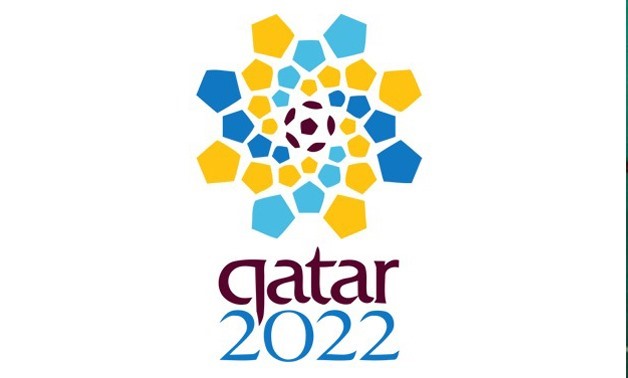
Qatar 2022 logo- CC via Wikimedia
CAIRO – 16 July 2017: Qatar’s host of the 2022 World Cup became debatable following sanctions imposed by some Arab states on the Gulf country as well as labor abuses scandal that threaten its ability to hold the international football’s top tournament.
The football associations of Egypt, Saudi Arabia, Yemen, Mauritania, the U.A.E. and Bahrain officially demanded FIFA to remove Qatar as hosts of the tournament, in light of accusations of funding terrorism in the region.
FIFA President Gianni Infantino told Swiss website The Local on Saturday that a number of Arab countries had written to the FIFA to apply Article 85 of the FIFA Code, which allows for canceling Qatar’s host in the case of emergency.
Earlier in June, a crisis was escalated in the region when Egypt and a coalition of Arab states in the Gulf Cooperation Council announced a coordinated diplomatic break with Qatar, including Saudi Arabia, the United Arab Emirates and Bahrain.
The decision stemmed from accusations that Qatar has been supporting the Muslim Brotherhood, an Islamist group designated as a terrorist organization by some of the allied nations, in part via the Doha-based al-Jazeera satellite channel.
In severing ties, Saudi Arabia, the UAE, Egypt, and Bahrain took to closing land, sea, and air links with Qatar, and expelling Qatari nationals.
The sanctions imposed on Qatar can negatively affect the construction of sports facilities planned to receive the international tournament.
According to media reports, a number of international construction companies involved in the establishment of the sports facilities are allegedly planning to halt their work until the crisis settle.
Moreover, the recent decline in global oil and gas prices shadows the Qatari financial allocations for hosting the World Cup. Prior to the latest crisis, the officials had initially anticipated spending $200 billion on the construction process. But they were forced to reduce infrastructure portions of that budget by between 40% and 50%. The thing that could delay the execution of projects related to the tournament.
Another challenge is the systematic labor abuses monitored by international organization on the Qatari territories. Amnesty International revealed in a report published in 2016, called “The ugly side of the beautiful game”, widespread and systematic human rights abuses suffered by migrant workers employed in building stadiums and other infrastructure due to be used in the 2022 World Cup finals.
The report was based on interviews with 231 migrant construction workers falling under "kafala" sponsorship system, under which migrant workers cannot change jobs or leave the country without their employer's permission.
The workers complained of violations of basic rights. Some of them were forced to pay exorbitant recruitment fees to agents of the companies that hired them. Others lived in conditions unfit for human habitation, and had wages withheld and passports confiscated.
In response, FIFA released a statement saying that since 2011 it had been meeting key groups, including Amnesty International, to discuss consistent and sustained implementation of fair working conditions on world cup sites.
Amid all aforementioned financial and diplomatic obstacles as well as bad labor conditions in the Gulf state, Could Qatar lose its World Cup?

Comments
Leave a Comment